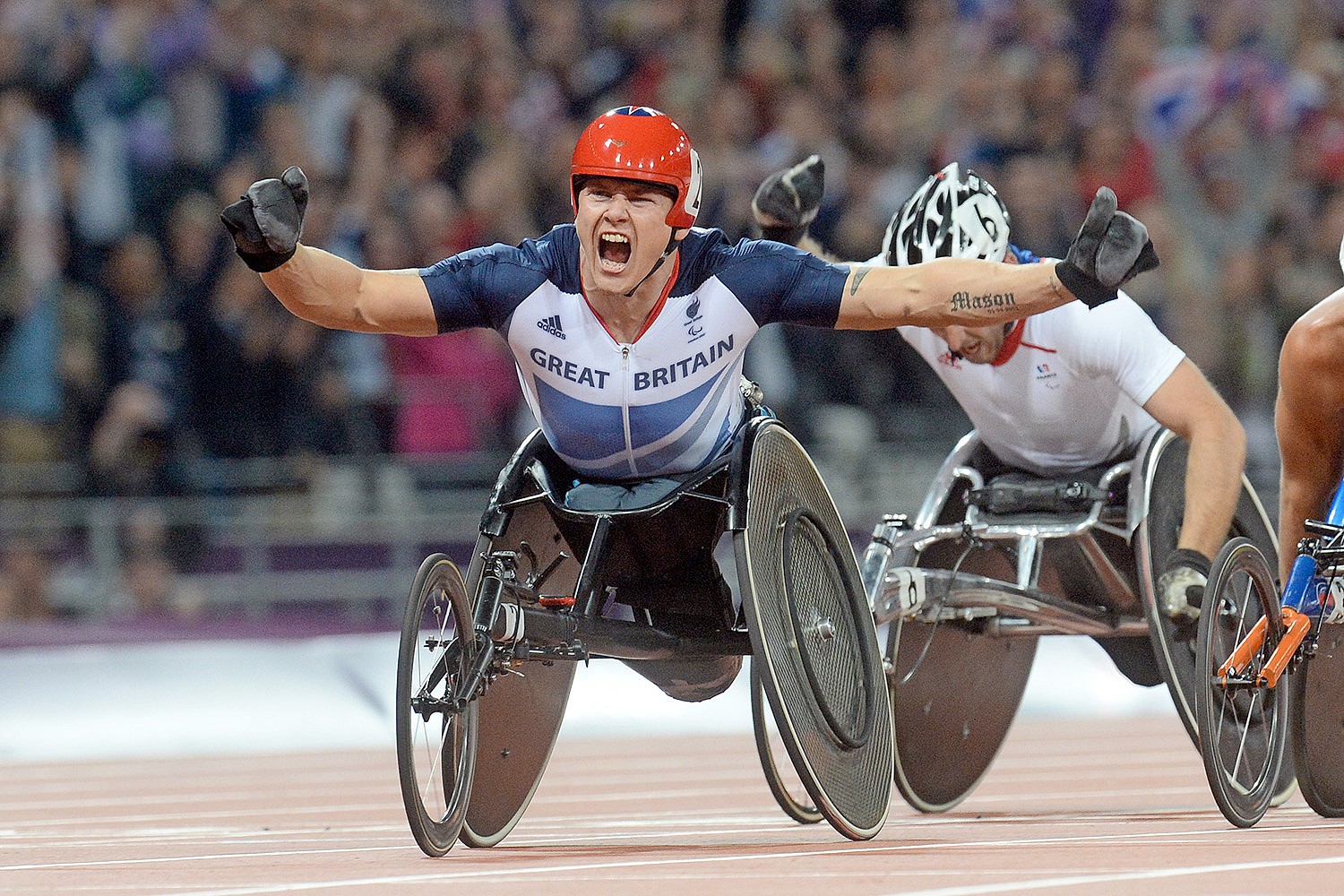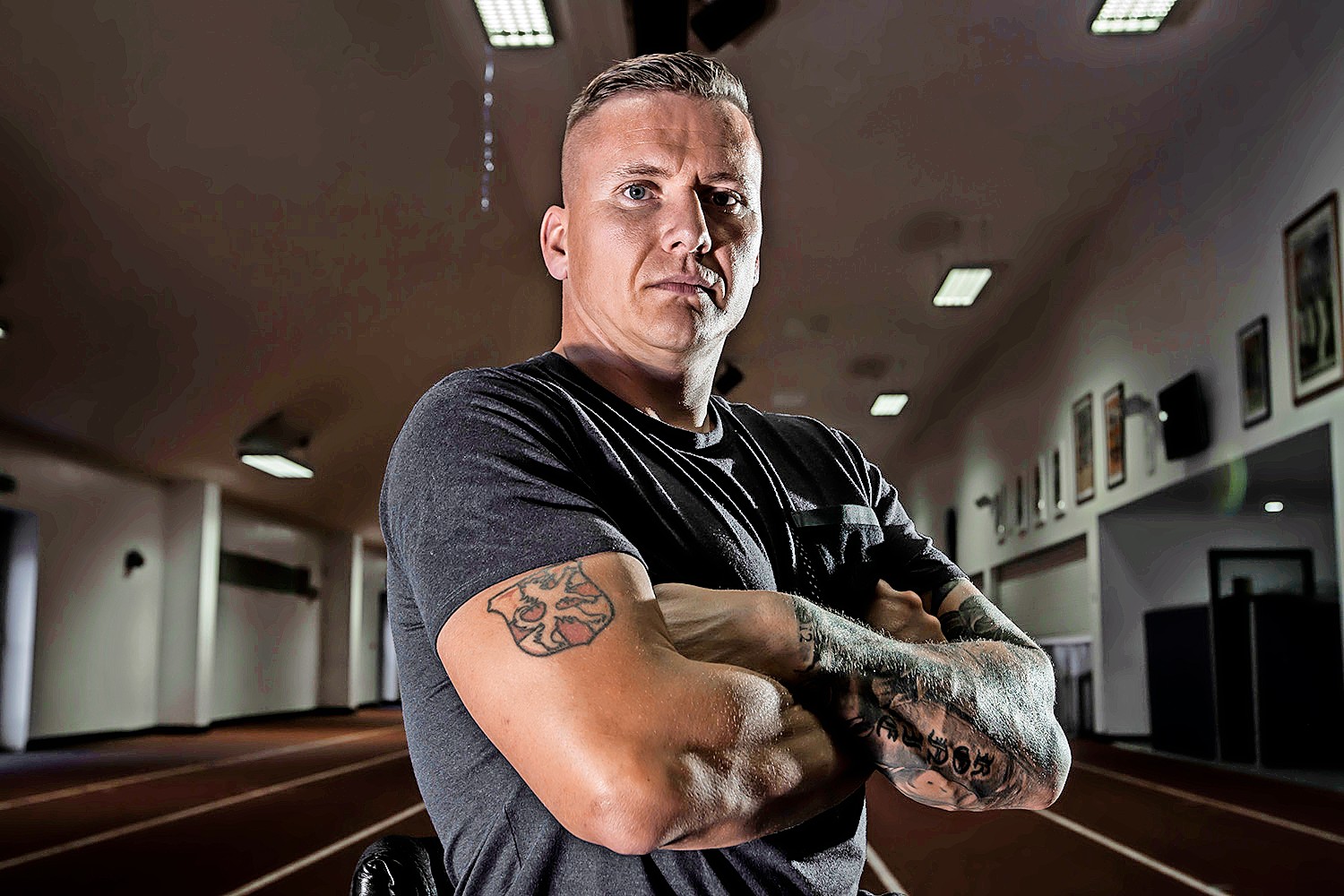‘No pain, no gain, Pheidippides.” No one said those words to the first man to run a marathon, either before he set off from the eponymous battle or after he arrived in Athens with news of victory and, so legend has it, dropped dead.
Pain and marathon running are inextricably linked. I’ve spoken to hundreds of people who have run a marathon, most of them one-offs in London, others who have run the 26.2 mile distance in other cities as well, and not one conversation has lacked the four-letter word.
But then I talked to David Weir. The eight-time London Marathon wheelchair race winner will compete in his 26th consecutive London Marathon today, and he is as laid-back as any of the five million or so viewers who will be watching from the comfort of their armchairs.
The overwhelming emotion for the 45-year-old as he prepares for this year’s race, is pride. As a Londoner, he is proud that his hometown race is still the biggest and best of the “Big Seven” (Tokyo, Berlin, Sydney, Boston, Chicago and New York City are the others). He is proud too of the way that his extraordinary proficiency – echoed by Baroness Tanni Grey-Thompson, Hannah Cockcroft and others – has propelled wheelchair racing into the public consciousness. And he is proud of the fact that the race organisers have recognised their worth by providing equal prize money for wheelchair and non-disabled athletes.
I have nothing but praise for the growing number of “day” chair users who can’t afford a high-tech chair like mine
I have nothing but praise for the growing number of “day” chair users who can’t afford a high-tech chair like mine
The winner of the wheelchair race will receive $55,000 (£41,300) – Weir’s first win in 2002 earned him £2,000 – and the fact that it was only last year that the wheelchair prize pot equalled that of the non-disabled elicits only the mildest criticism.
“It’s taken a bit long” is the furthest he will go, apart from pointing out that in any other sport, the elite athletes would expect and receive equal treatment. But there’s no escaping the conclusion that the greatest wheelchair racer of all time is feeling mellow. Weir is the British men’s record holder in his class at every track distance up to 5,000m, as well as on the road at 10km, half-marathon and marathon. “I enjoy training,” he insists, referring almost fondly to a recent trip to Europe where he completed a mere 115 miles over eight days, and he’s looking forward to this London Marathon as keenly as his first.

“The elite field is bigger, the standard is higher and the public attitude has changed immeasurably,” he said. Since London 2012, when the Paralympics exploded into the British sporting consciousness, Weir has achieved a celebrity and a status that he once could only dream about.
The crowds that cram the capital on race day appreciate that they will see the best of the best on wheels as well as on foot before they get to what, for most, is the real reason for going – the so-called fun runners.
More than 56,000 will attempt to raise a record £68 million for charity and although they will be starting an hour or so behind the wheelchair athletes, they will be finishing several multiples of that later.
“I have nothing but praise for them, particularly the growing number of ‘day’ chair users, who can’t or don’t want to afford a high-tech, aerodynamic racing chair like mine. Many simply have a gadget to lift the front of their wheelchair, and that’s it. The sacrifices they make to get to this point are, in a sense, far greater than the elite athletes. They have to fit their preparations for a race which is gruelling, even for most highly-tuned athletes, around their working lives. For us, the training is our working life.”
Newsletters
Choose the newsletters you want to receive
View more
For information about how The Observer protects your data, read our Privacy Policy
And so, presumably, is the pain. For Weir and the other elite competitors, the London Marathon is just another stop on the way to the Big Seven, with the season ending in November. For more than 56,000 others, the gain and the pain are one. And imminent.
Chair designed by Formula One prolonging Weir's career
At 45, David Weir is enjoying a new lease of racing life thanks to a state of the art wheelchair donated by a publicity-shy benefactor.
It was originally designed by the Swiss team behind the Sauber Formula One outfit for Weir’s great rival, and last year’s London Marathon winner, Marcel Hug.
“They are so precise. They make sure everything is perfect. When I tried it, I felt it was too low for the way I race. So they made cushions for me, perfect knee padding, bespoke wheels costing £8,000 a set, and moulded the seat round me like a Formula One cockpit. With a travel box as well, it cost my benefactor about £40,000.
“I am certain it has prolonged my career. Two London [Marathons] ago I was asking myself if I could do another one, my motivation had gone and I wondered if I was too old, no longer as good as the other athletes.”
Photograph: onEdition, Jeremy Selwyn



